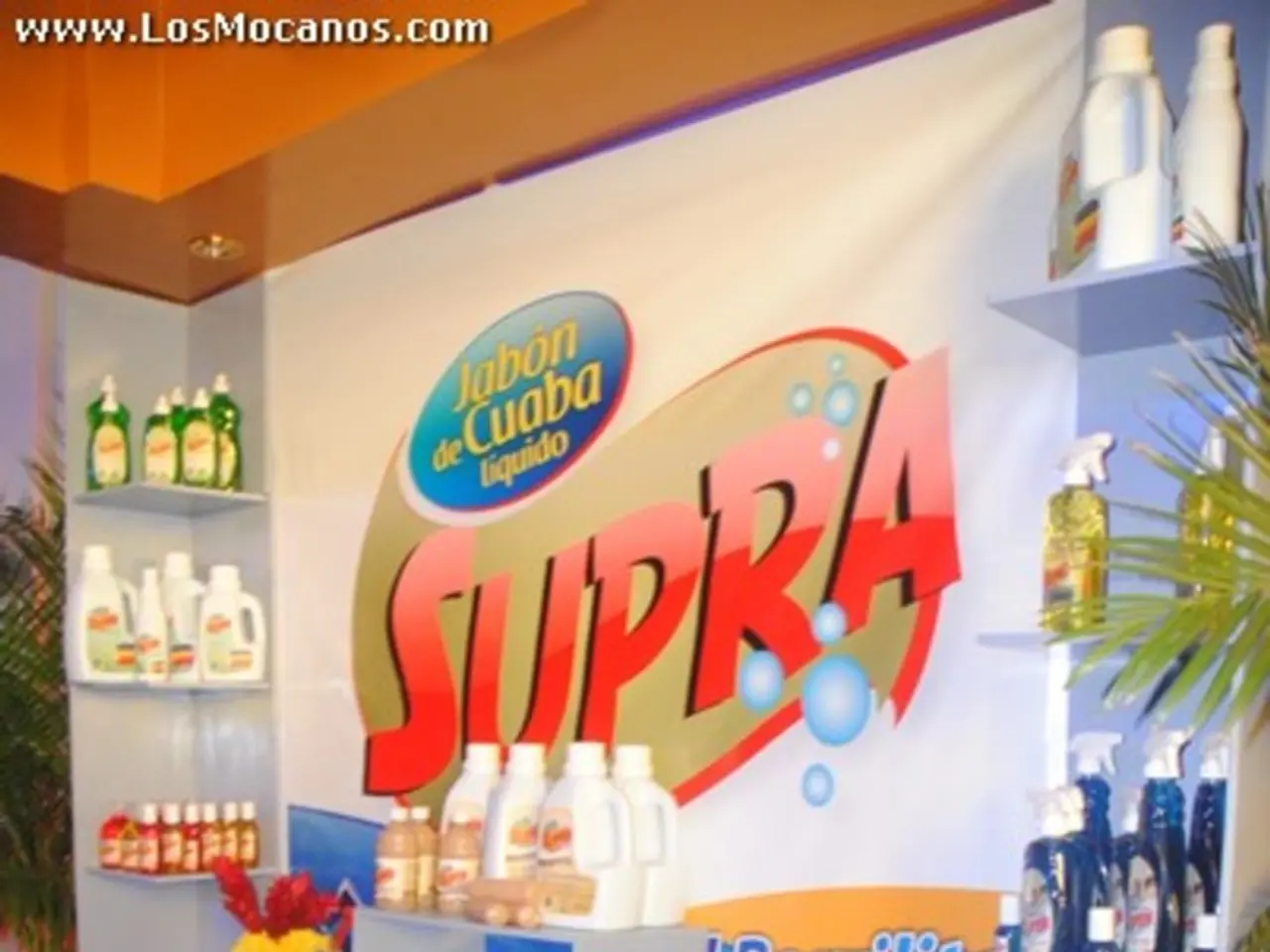Rabobank supports Musim Mas' inaugural loan tied to sustainability standards, without waiting for external auditors to finalize their assessments
In a significant move towards sustainable finance, Dutch bank Rabobank has approved a €150 million (approximately US$217 million) sustainability-linked loan (SLL) for Musim Mas, Indonesia's largest palm oil exporter. This loan is one of the notable SLL arrangements in Asia, following Ant Group's US$6.5 billion deal, coordinated by Dutch bank ING.
The SLL for Musim Mas is structured to ensure high integrity by verifying the sustainability claims from a reputable and independent standpoint. This is achieved through a rigorous validation process that includes independent verification of sustainability key performance indicators (KPIs), use of expert sustainability units for dispute resolution, ongoing verification and data tracking, alignment with established sustainability standards, and public transparency.
The loan is a converted revolving credit facility, using a "sleeping SLL" mechanism, which allows the borrower to delay setting KPIs until after the deal's closing date. The exact procedural details for Musim Mas are not fully elaborated, but the general approach reflects industry best practices.
Best Practices for SLLs in the Palm Oil Industry
The best practices for third-party verification in SLLs in the palm oil industry involve a structured, transparent, and multi-layered assessment process. These practices typically include:
- A two-stage KPI assessment applying a four-eyes principle where independent reviewers assess the ambition and materiality of each KPI individually, followed by an overall evaluation of the KPI set to confirm eligibility.
- Escalation mechanisms involving expert committees or sustainability units to resolve non-congruent assessments or classification disputes, ensuring transparency and rigor in the sustainability claims.
- Regular monitoring and engagement post-investment through site visits, surveys, and periodic performance discussions to verify compliance and progress on sustainability targets.
- Use of established sustainability frameworks and reporting standards to guide assessment and verification, promoting credibility and consistency.
- Public disclosure and transparency about the verifications and classification outcomes are encouraged to maintain trust in the SLL process.
Criticisms and Controversies
Despite the efforts towards sustainable finance, some critics have expressed concerns about the lack of transparency and strong monitoring frameworks in SLLs. Merel van der Mark, coordinator of Forests & Finance, has stated that the KPIs set for the SLL are not ambitious and that the KPI on maintaining a deforestation-free supply chain should require Musim Mas to achieve a 100% deforestation-free supply chain by 2024.
In a related incident, Japanese megabank MUFG faced criticism for lending millions in SLLs to Royal Golden Eagle (RGE), a Singapore-based palm oil and paper company, following satellite analysis suggesting deforestation in its concessions. Both MUFG and RGE have responded to these accusations, with MUFG reiterating its "rigorous" client assessment process and RGE refuting RAN's findings.
Last June, the United Kingdom's Financial Conduct Authority warned of potential conflicts of interest in SLLs, where banks may be incentivized to accept weak KPIs in loan agreements to hit sustainable finance targets tied to their remuneration benefits. As of now, the Financial Conduct Authority has no plans to introduce regulatory standards for the SLL market, but may reconsider if needed.
In conclusion, the sustainability-linked loan for Musim Mas, while a significant step towards sustainable finance, faces criticisms and controversies. It remains crucial for banks and borrowers to adhere to best practices and maintain transparency to ensure the integrity and effectiveness of SLLs in promoting sustainable palm oil production.
- Best practices for third-party verification in sustainability-linked loans
- Rabobank approves €150m sustainability-linked loan for palm oil giant Musim Mas
- Sleeping SLLs: A New Trend in Sustainable Finance
- Forests & Finance
- Rainforest Action Network
- MUFG faces criticism for lending millions in sustainability-linked loans to palm oil firm
- UK financial regulator warns of conflicts in sustainability-linked loans
- Best practices for third-party verification in sustainability-linked loans (SLLs) involve a structured, transparent, and multi-layered assessment process, including a two-stage KPI assessment, escalation mechanisms, regular monitoring and engagement, use of established sustainability frameworks and reporting standards, and public disclosure.
- Rabobank approves €150 million (approximately US$217 million) as a sustainability-linked loan for Indonesia's largest palm oil exporter, Musim Mas.
- In SLLs, sleeping SLLs allow the borrower to delay setting KPIs until after the deal's closing date, presenting a general approach that reflects industry best practices.
- Merel van der Mark, coordinator of Forests & Finance, has criticized the KPIs set for the SLL, stating that they are not ambitious and that a 100% deforestation-free supply chain by 2024 should be required.
- Japanese megabank MUFG faced criticism for lending millions in SLLs to Royal Golden Eagle, a palm oil and paper company, following accusations of deforestation in its concessions, with both parties responding to the accusations.
- Last June, the United Kingdom's Financial Conduct Authority warned of potential conflicts of interest in SLLs, where banks may be incentivized to accept weak KPIs to hit sustainable finance targets.
- As of now, the Financial Conduct Authority has no plans to introduce regulatory standards for the SLL market, but may reconsider if needed.




